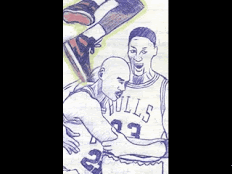Culturally, we must be born again and revive our traditional songs, riddles, folk tales, proverbs, musical instruments, oral literature and other artistic values. In pre-colonial times, the Lugbara were known as Madi. Under colonialism, they were given the strange name of ‘Lugbara’ probably by Arabs who came to their land more than a century ago. Colonial powers further divided them into Belgian and British areas of influence. These vicissitudes have been detrimental to our identity and heritage.
However with the formation of the Lugbara Literature Association (LULA) on Saturday 12th November 1994 at Arua, there was a ray of hope that something will be achieved for the benefit of our posterity and property. At the time of its formation, the first chairman of LULA Mr. Jason Avutia said, “Lugbaras are intelligent, energetic and far sighted but what is surprising about them is that they often undertake a task and don’t complete it. They often develop jealousy, envy and an ‘I don’t care’ attitude. Most of the Lugbara will join hands to do a task expecting to eat. Where eating is difficult to come by, they will withdraw and care less. Other pioneers of LULA were Nahor Oyaa, Awua (coordinator) and Abeti S. Ledra (Educationist, Bachelor in Education, Masters in Education [MUK]).
Historically though the Lugbara have been known to be hard workers fit for military life, plantation labour and tobacco growing (Arua alone produces over 50 % of Uganda’s tobacco). Even a British missionary archdeacon Vollor (Bwana Vollor has a road named after him in Mvara) of the African inland Mission said in praise of the Lugbara that, “Mungu le Lugbara ambo.” (GOD likes the Lugbara very much).
Culture is an expression of life and its diversity…You can’t know where you are going unless you know where you are coming from…Home Sweet Home. While others speak Chinese, we must keep it local and lugubriuous… [Excerpts from ‘A Short History of the Lugbara (Madi) by Lulua Odu 1996)
This AikoGraphics (+256-781-345712) Cascade blogs about an amazing Cultural Heritage and includes some of the Old and New Things you need to know concerning the Lugbara World - modern, modest, distinct, wild and truly African. The Lugbara are the Largest Tribe in West Nile... MUNGU ni ambo [GOD is great]!
Aiko TV

Awa'difo mini nerisi...
Nda
Lugbara AI

Ojapi: Transcribe, translate, chat (+256-781-345712)...
O'bi Ni Ne Ndeni [Most Viewed]
-
Pronunciation in Lugbara has diphthong clusters and other noteworthy phonetics including the following: aa as in bat , for example embata...
-
My dream is to post a plethora of Lugbara lyrics and this is one of the very first projects I have indulged myself in. J.M. Kennedy is a ver...
-
e’yo [message, issue], o’diru [new], waraga [letter], 'ba [people], tualu [together], buku [book], isu [find], efini [meaning], osita [b...
-
[INSTRUMENTAL:] [CHANDIRU WHISPERS:] Agasi, aga'bo, agasi! Agasi, aga'bo! [VERSE ONE:] Ini ce ra, ale mi ra! Ico aco ku, ah...
-
"Ngoni?" is the standard Lugbara Greeting (meaning ‘How are you?’). "Muke!" is the Response when you are fine. Neverthel...
-
The foreword of this book is written by Jason Avutia (The Chairman of LULA and an Elder), preface is by Lulua Odu 24th August 1996 Arua, Wes...
-
Hiphop and Reggae are very dynamic and Black Harmony (from West Nile) are the supreme flag bearers of these genres in Lugbara-land. I prefer...

